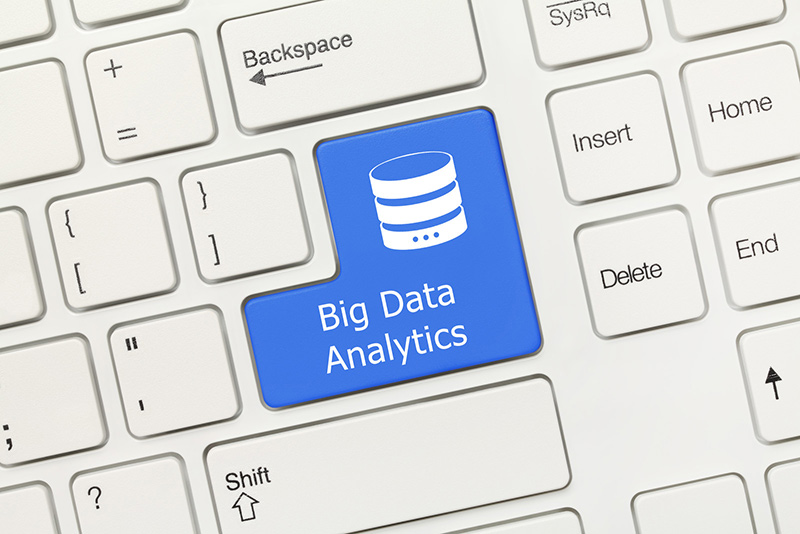Nowadays, data has become a crucial element for every single industry. With industries becoming highly data–intensive, emphasis is slowly shifting from data generation to data analysis. Big data analytics refers to the use of advanced techniques to analyze data for constructive use. Data entry services help businesses streamline their large volume complex data. Businesses around the world are recognizing the significance of data analytics and the hotel industry is no exception in this regard. A data-rich industry that captures huge volumes of data (audio, video and web data), effective usage of analytics can dramatically impact the functioning and marketing of the hotel business. Right from enhancing operational efficiency, expanding customer base, building customer loyalty and offering better hotel pricing strategies, Big Data is changing the future of the hospitality sector in immeasurable ways. In fact, emerging technologies such as artificial intelligence and machine learning are driving serious changes in big data analytics.
Any industry, which primarily relies on customer service, must learn to adapt to changing customer needs, if they are to stay relevant in business. This aspect is quite significant, particularly in the hospitality sector, where providing top-tier customer service is crucial to staying competitive. Hospitality Technology reports that big data is one of the biggest game changers in this field. It is estimated that the big data analytics market is all set to reach $103 billion by the end of 2023. Hotels and other related companies functioning within the sector are increasingly getting to grips with the concept of big data, and the numerous ways it can help them generate more revenue and deliver a better experience for customers.
How Is Big Data Analytics Transforming the Hotel Industry?
What does the term “Big Data” actually mean and do only big companies make use of this technology?
In simple terms, “Big Data” refers to a huge volume of data (unstructured as well as structured). However, what is significant here is not only the sheer volume of data, but how this data is being utilized. Big Data can be examined for insights that lead to strategic business moves. By analyzing this data, you can find important answers that enable smart decision making, new product development and optimized offerings as well as time and cost reductions. The role of Big Data in the hospitality sector is very significant, as the sector caters to millions of travelers a day, each with their set of expectations, needs and desires of what they want out of their trip. To effectively fulfill the individual needs and expectations of the customers or guests and convert them into long term clients, more hoteliers are turning to advanced solutions like data analytics. With a large amount of customer touch points and the availability of third-party data sets, these businesses have more data at their fingertips than ever before. In fact, many large hotel chains have already started to actively embrace the benefits of Big Data. For instance, Marriott International – one of the largest hotel chains in the world – use a “Group Pricing Optimiser (GPO)”, which works with various price models based on statistics of different market segments. This allows the hotel chain to sell the way a specific set of customers want to buy and meet specific needs.
The use of Big Data technology allows businesses to access crucial datasets to improve their operations, target more effectively and drive personalization across their venues and sites. Right from increasing revenue to improving the customer experience, here are some of the top ways in which Big Data is benefitting or bringing tremendous changes across the hotel industry –
- Yield Management – This term is nothing new in the hotel industry. In order to reach the optimal price, companies have been successfully offering customer-specific room rates to clients for years. With Big Data, hotels can take revenue management to the next level and offer increasingly more personalized prices to guests. In fact, the growth of different social media networks, travel booking websites and comparison websites (like Yelp, Trip Advisor) has given companies a vast amount of insight into consumer likes and dislikes. Through a combination of the data they gather themselves, and information available online, hotels can use big data to assist them with a revenue management strategy. In particular, hotels use their own internal data reserves from CRMs and loyalty programs, past occupancy rates as well as external data like information regarding holidays and local events, to carry out predictive analysis. This allows hotel owners to more accurately anticipate levels of demand for hotel rooms and offers a great idea on the right price-value combination for their customers. Once big data has been successfully used to predict demand, those within the hospitality industry can take steps to optimize room rates, in order to maximize revenue and profit.
- Targeted Marketing – Big data helps in revolutionizing the way marketers can segment and target their customers to drive awareness, loyalty and improve the bottom line. Placing data at the center of their strategies can help improve efficiency, reduce wasted ad spending, and create a more engaging advertising experience for consumers. For hospitality businesses, a more detailed understanding of guest preferences, the path to booking and other vital metrics (such as abandonment and loyalty) is crucial. Big data allows hospitality marketing teams to micro-target consumers based on a detailed understanding of their behavior. This allows marketers to create more specific segments which can be targeted with unique offers and promotions. For instance, big data can help identify key customer segments that frequently visit hotels or other relevant locations. Data can ensure that these are both location- and time-specific, to reach the right customer with the best possible message. In short, this is an excellent way for hospitality marketers to reach the right group of customers with the right advertising in the place where they want to see it.
- Mobile Data – With an increasing growth in the use of mobile devices, hotel groups invest more time on developing user-friendly apps to book their rooms, and explore their services thereby offering personalized services. For instance, equipping the hotel’s housekeeping department with smart devices allows them to know, in real time, when a customer needs an extra pillow or an extra light in their room. It places the user-friendly analytics and data into the hotel’s hands to help improve customer satisfaction and bridges the gap between user and service. There are several Big Data tools like Hadoop, Spark and Hive in the market used for analyzing data, and for determining cost efficiency and time management.
- Customer Experiences and Preferences – Hotels can utilize big data technology to spot or evaluate significant trends in terms of customer opinions and preferences, and learn about their strengths and weaknesses in the process. This may involve gathering service usage data, feedback from customers on social media, reviews posted on websites, and other related information. An essential aspect of any hospitality business, feedback can be utilized alongside other data to provide real value to companies looking to improve and personalize the customer experience. Internal and external data sources are being increasingly used to identify a customer’s travel patterns, real-world behavior, habits and online behavior. Hotels can combine transactional and location data to understand the personal preferences of their guests. This information can help form strategic partnerships with restaurants and offer discounts for guests to venues that they already visited.
- Harness Social Media – Social media platforms are the top digital media tools with the unique power to engage and connect with the audience across national and international locations. This means that any hotel business that wants to stay ahead in the game will have to use digital mediums to connect with their customers in a better manner. Social media platforms allow customers to connect with the brand in a new way. Many customers nowadays turn to these platforms for requests, ideas and concerns. Hotels can use these platforms to provide valuable information about their services and products to their target audience. However, being active on social media can sometimes backfire as customers can use this medium to complain about the services they received. So, the hospitality sector must be ready to handle customer queries in a prompt and sustainable manner.
- Competition Scouting – Big data can also be used to get a clear idea about competitors and to see what other hotel chains in the sector are offering to their customers. In the current digital age, there are many review sites, social media platforms, internet forums and travel publications wherein customer opinions can be found. All this data can be gathered and processed to find the positive trends that matter. Positive as well as negative reviews and comments your competitors receive would be available. Such information can not only help a hotel to take advantage of their competitor’s limitations, but also learn about the specific areas where they are actually outperforming them.
- Business Intelligence and Prediction – Big data is a powerful tool to evaluate business performance and predict what will happen in the future. As business intelligence runs on big data, it enables organizations to understand the performance of their venues and evaluate new metrics that help to understand customer satisfaction and spending. This also helps to identify the effect of strategic investments like menu changes, or other significant business decisions. Big data solutions can be used to predict when the next big rush will be and allow the business to staff accordingly. This ensures that customer experience is valued and resources are not wasted when seasonal activity is lower.
- Inventory Management – With data analytics, hotels can keep a close track on the supply, and identify current usage trends as time passes. This in turn helps maintain a balance of inventory – that is – hotels neither run out of inventory nor have an excess of the same at any point of time. In addition, efficient inventory management is also helpful for successfully implementing hotel pricing strategies.
The concept of big data analytics is transforming the way businesses perform their key functions. For the hospitality industry, there are a lot of datasets around and understanding what each type does and how it can benefit the business remains a real challenge. The data available in this sector is huge, and that is why there is immense potential and opportunity available here. Unifying these datasets to work together will provide a rapid increase in revenue and improve the customer experience. In the hotel industry, customers leave a data trail right from the moment they check into a hotel and these can easily be used and converted into insights that can help a hotel brand understand and empower their customer base in the right sense. Big data can be used to predict future trends, optimize their operations, enhance customer experience and analyze the level of competition. Managing “Big Data” can be much easier with data entry outsourcing services that help process high quality and accurate data within short turnaround times.




